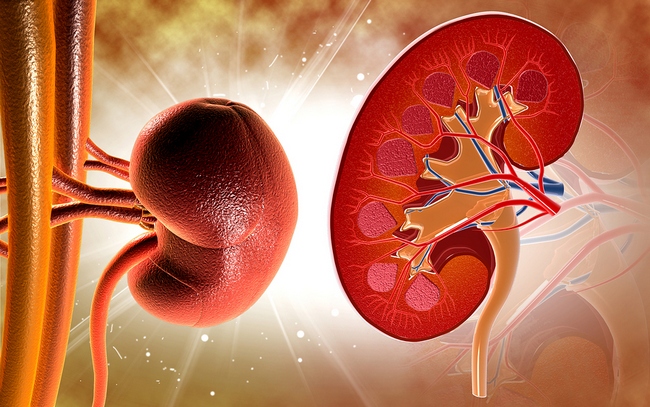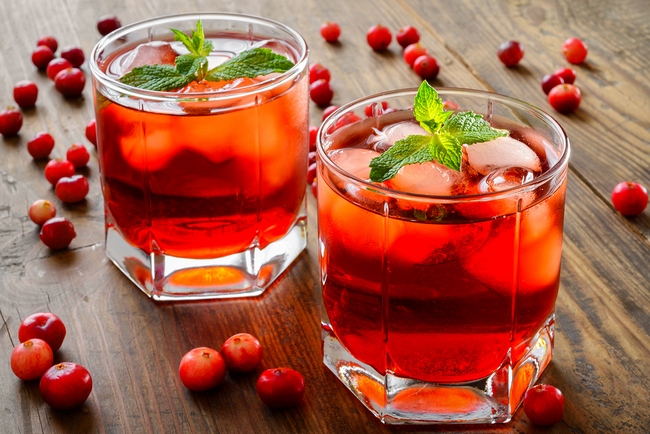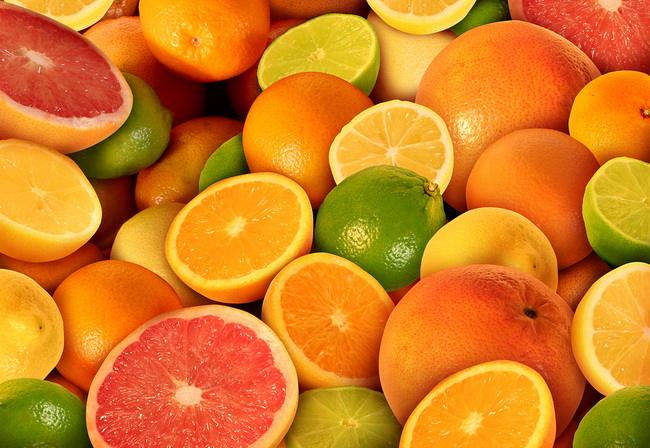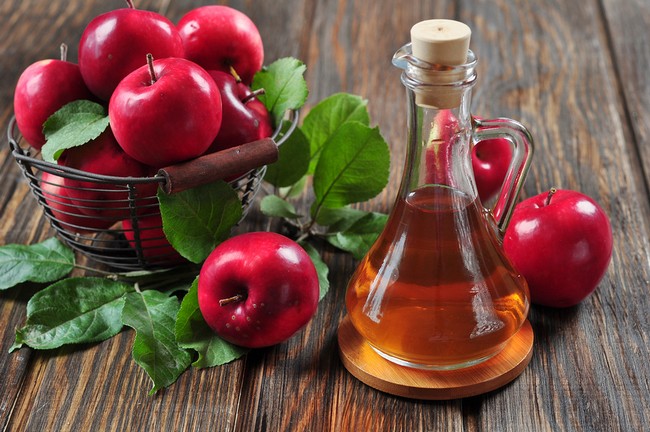- Make It Yourself Lavender Heart-Shaped Bath Bombs!
- 20 Things You Never Knew About “Down There”
- 12 Best Foods For Those Suffering From Arthritis Pain
- 12 Personal Hygiene Mistakes Almost Everyone Makes (Mom Never Told You About #4!)
- 15 Medicinal Plants And Herbs From The Cherokee People
- 12 Mind-Blowing Benefits Of Drinking Coconut Water During Pregnancy
- 12 Outstanding Winter Foods That Won’t Fatten You Up Like A Christmas Turkey
12 Natural Methods to Stop Kidney Infections (#9 is a Bit Strange but Works)

Photo credit: bigstock
If you have ever had a kidney infection, then you are already well-aware of the pain and burning it can cause. Pyelonephritis, your doctor’s term for a kidney infection, is caused by a bacterial infection that goes from the urinary tract, up to the bladder, finally reaching the kidneys. Sometimes it’s only one kidney, but it can affect both kidneys.
Women have a higher risk of kidney infection due to their shorter urinary tract systems, and pregnant women are especially vulnerable. Other factors that can increase your risk of developing kidney infections including HIV, certain treatments’ side effects, kidney stones, diabetes or a weakened immune system.
Typical symptoms of a kidney infection include a dull ache in the side or lower back where the kidneys are located, nausea, a burning sensation when urinating, pain when urinating, vomiting, fever, an urgent need to urinate, urinating frequently and pain directly above the public bone.
If not treated quickly, kidney infections can lead to permanent damage or other serious complications. You should consult a doctor for proper diagnosis and treatment.
We have a list of 12 of the best ways to reduce the painful symptoms and encourage healing.
1. Ditch the Pain Relievers
You might think that taking pain relievers might be the answer to your pain, but actually over-the-counter pain relievers such as ibuprofen, naproxen, aspirin — even acetaminophen — are very, very hard on the kidneys. Studies show that heavy use of pain relievers greatly increases your risk of developing kidney cancer. Keep reading: We have a few methods that can help to ease the pain while your kidneys are healing.
2. Increase Your Fluid Intake
Simply increasing your fluid intake when you have a kidney infection can reduce the pain and other symptoms while encouraging quick recovery. Extra fluids will flush waste, toxic compounds and bacteria from your kidneys, allowing them to heal faster. Be sure you are drinking a minimum of eight glasses of water each day, along with some herbal teas. You might want to add some lemon juice to your water. Avoid alcohol and coffee until the infection has disappeared.
3. Eat Kidney-Smart
Eating foods that offer support to the kidneys can help them to naturally fight the infection and prevent future infections. Foods that offer serious kidney support are:
- Peppers
- Apples
- Garlic
- Onions
- Cabbage
- Cauliflower
- Olive oil
- Watermelon
- Cranberries
- Strawberries
- Blueberries
- Raspberries
Add more of these to your diet, and kiss those infections goodbye! Read also about herbs that support kidney health.
Continue to Page 2

Photo credit: bigstock.com
4. Keep It Warm
Pain in the lower abdomen, lower back and hips is quite common for those suffering from kidney infections. To ease the pain, relax the muscles in your back and abdomen, and relieve the pressure from your bladder by placing a hot water bottle wherever you feel pain. You can also use a heating pad set to low or medium, or take a warm bath to relax the muscles, reduce inflammation, and bring some much-needed blood circulation to the area.
5. Cranberry Juice
In 2009, the University of Minnesota conducted a study in showing cranberry juice is very helpful when it comes to naturally treating urinary tract infections. It can also prevent reoccurrences in women. This will help to prevent kidney infections from starting. This tart juice makes your urine more acidic, which will prevent the bacteria from living on the walls of the urinary tract. Drink one glass (just eight ounces) of unsweetened cranberry juice each day for numerous health benefits, including preventing kidney infections and other urinary tract infections.
6. Avoid Phosphorous
You rarely hear about phosphorous because deficiencies are very rare, especially for Americans eating a typical diet. The problem that most Americans have is actually an abundance of phosphorous. This mineral is found in most foods, but it is especially plentiful in carbonated drinks, prepared foods and processed foods. The body only needs a maximum of 1200 mg of phosphorous each day. Higher amounts are flushed out of the body by the kidneys. When the kidneys are not working properly, are weak or are infected, phosphorous can accumulate in the body, causing some pretty serious consequences. These include bone problems, calcifications of body tissues and heart problems. To avoid excess quantities of this mineral, don’t drink carbonated drinks (or just limit them), eat a more natural, plant-based diet and limit your consumption of fast food and processed food.
Continue to Page 3

Photo credit: bigstock.com
7. Yogurt
The probiotics and antioxidants in plain yogurt can actually treat a kidney infection, as well as preventing reoccurrences. Yogurt contains live, good bacteria that stop the bad bacteria from adhering to the walls of the urinary tract. The probiotics will strengthen the body’s immune system. Eat two or more cups of plain yogurt each day to help heal infections and stop them from coming back. Always buy yogurt with active, live cultures. You can also easily make your own at home.
SEE ALSO: Best 8 Knockout Kidney Detox Juice Recipes
8. Increase An Important Vitamin
Vitamin C provides vital support to your immune system, which will allow it to fight infections naturally. Vitamin C also raises the acid level in your kidneys, making it difficult for bacteria to live and grow inside them. Eat plenty of vitamin C-rich foods daily including kiwi fruit, broccoli, strawberries, tomatoes, oranges, grapefruit and other citrus fruits. Find out how to make your own vitamin C supplements.
9. Parsley Juice
You might think parsley is just a pretty decoration on your plate, but parsley juice is a terrific cleansing tonic for the kidneys. It will flush out microorganisms and other harmful toxins from the kidneys. You can make your own juice at home by adding one tablespoon of crushed, (dried or fresh) parsley to one cup of boiling water. Allow this to steep for five to 10 minutes, then strain. Drink twice each day for four weeks to fight a kidney infection and once each week afterwards to keep an infection from recurring.
Continue to Page 4

Photo credit: bigstock.com
10. Apple Cider Vinegar
The malic acid in apple cider vinegar has powerful antibacterial compounds that can be very helpful when it comes to treating kidney infections. It will balance pH levels in the body, and stop a current infection from spreading. Mix one tablespoon of raw, unfiltered apple cider vinegar, and two teaspoons of raw, organic honey in one glass of water. Drink this twice a day for four weeks or until you see improvements in your condition.
11. Epsom Salt
Treating yourself to a detoxifying bath filled with Epsom salts is a great way to remove waste and toxins from the body while giving yourself a boost of magnesium.
12. Marshmallow
This is a very popular herbal remedy to help heal and prevent kidney infections. Marshmallow root (not the marshmallow you cook over the campfire!) has powerful diuretic compounds that will flush out bacteria and other toxins from the kidneys. Marshmallow is known for fighting unfriendly bacteria. Its antioxidant compounds also protect the cells lining the urinary tract from damage caused by free radicals. Make your own marshmallow tea by adding one tablespoon of dried marshmallow root or leaves to one cup of boiling water. Allow to steep for 10 minutes and strain. Drink this tea three or more times each day until you are free from infection.
Please note that pregnant women, nursing mothers and people with diabeties should not take marshmallow root.
Extra Tips:
- Avoid or limits foods that are high in potassium and phosphorous.
- Stop smoking, as this interferes with kidney function.
- Use extra virgin olive oil in salad dressings and dips to help prevent kidney problems.
- If you are prone to infections or if you already have a kidney infection, avoid bubble baths as this makes the problem worse.
- Avoid wearing synthetic underwear or tight pants.
- Don’t hold your urine for long periods of time. Urinate as soon as possible once you feel the urge.
- After having sex, be sure to urinate and wash to prevent bacteria from spreading.
References:
































